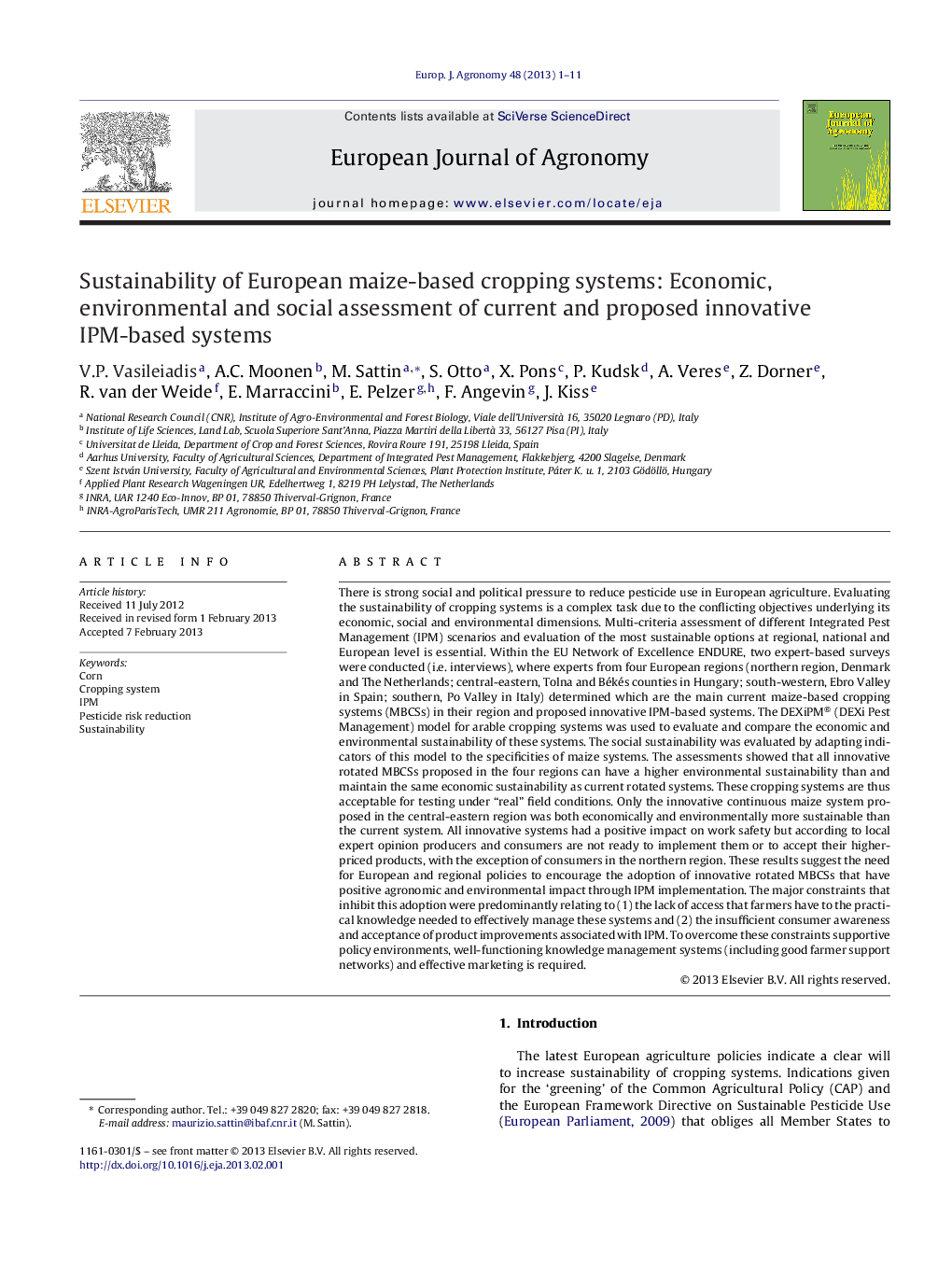| کد مقاله | کد نشریه | سال انتشار | مقاله انگلیسی | نسخه تمام متن |
|---|---|---|---|---|
| 4509071 | 1624478 | 2013 | 11 صفحه PDF | دانلود رایگان |

There is strong social and political pressure to reduce pesticide use in European agriculture. Evaluating the sustainability of cropping systems is a complex task due to the conflicting objectives underlying its economic, social and environmental dimensions. Multi-criteria assessment of different Integrated Pest Management (IPM) scenarios and evaluation of the most sustainable options at regional, national and European level is essential. Within the EU Network of Excellence ENDURE, two expert-based surveys were conducted (i.e. interviews), where experts from four European regions (northern region, Denmark and The Netherlands; central-eastern, Tolna and Békés counties in Hungary; south-western, Ebro Valley in Spain; southern, Po Valley in Italy) determined which are the main current maize-based cropping systems (MBCSs) in their region and proposed innovative IPM-based systems. The DEXiPM® (DEXi Pest Management) model for arable cropping systems was used to evaluate and compare the economic and environmental sustainability of these systems. The social sustainability was evaluated by adapting indicators of this model to the specificities of maize systems. The assessments showed that all innovative rotated MBCSs proposed in the four regions can have a higher environmental sustainability than and maintain the same economic sustainability as current rotated systems. These cropping systems are thus acceptable for testing under “real” field conditions. Only the innovative continuous maize system proposed in the central-eastern region was both economically and environmentally more sustainable than the current system. All innovative systems had a positive impact on work safety but according to local expert opinion producers and consumers are not ready to implement them or to accept their higher-priced products, with the exception of consumers in the northern region. These results suggest the need for European and regional policies to encourage the adoption of innovative rotated MBCSs that have positive agronomic and environmental impact through IPM implementation. The major constraints that inhibit this adoption were predominantly relating to (1) the lack of access that farmers have to the practical knowledge needed to effectively manage these systems and (2) the insufficient consumer awareness and acceptance of product improvements associated with IPM. To overcome these constraints supportive policy environments, well-functioning knowledge management systems (including good farmer support networks) and effective marketing is required.
► Innovative rotated systems can be environmentally more sustainable than current ones.
► Innovative rotated systems can maintain economic sustainability as of current ones.
► All innovative systems can have a positive impact on farmer's safety at work.
► Producers and consumers seem not ready to implement the innovative systems.
► DEXiPM is a useful tool for assessing the sustainability of systems.
Journal: European Journal of Agronomy - Volume 48, July 2013, Pages 1–11